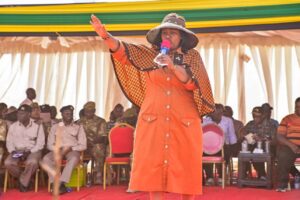Renowned Economist David Ndii has slammed President Uhuru Kenyatta yet again stating that he did not deserve to be the Head of State.
Ndii was responding to Information, Communications, and Technology Cabinet Secretary Joe Mucheru’s announcement that no government service would be offered to any Kenyan without the Huduma Namba card as of December 2021.
Ndii who is a fierce critic of President Uhuru Kenyatta’s government said that the Commander-in-Chief has no idea of how to handle big issues and should have been a Member of County Assembly (MCA) or an area Chief.
“Cabro pavements, ID cards, this guy (Uhuru) should have been councilor or a chief. No mental bandwidth for the big national issues. No surprise that his legacy is KSh 7 trillion debt and white elephants,” he tweeted.
On Wednesday 18, CS Mucheru while speaking during the launch of the Huduma Card in Machakos County made it clear that only the Huduma Card would help one in getting services from the government.
He said that the use of National Identification Cards (IDs) will cease starting December 12 next year.
“Vyombo vya serikali na watu wa biashara waanze kuweka teknolojia ile watatumia kwa hii card. Card itakuwa na QR code–ni code ile unaweza kusoma na simu, sio lazima uwe na ile machine. Sasa tumeanza mpango ili ofisi zote za serikali ziwe na hizo machines ndio ukifika huko unatumia card ama unaweka fingerprint, tunajua wewe ni nani na inaleta security na protection,” CS Mucheru said.
Mucheru pointed out that with the COVID-19 cases rising every day, Kenyans will be notified via SMS where and when to pick their cards so as to maintain the COVID-19 prevention and control protocols.
He added that after receiving the notifications, they will be given one month to pick the cards.
He added that the government will start issuing the Cards to one million people, before targeting three million people in January and later five million in February.












